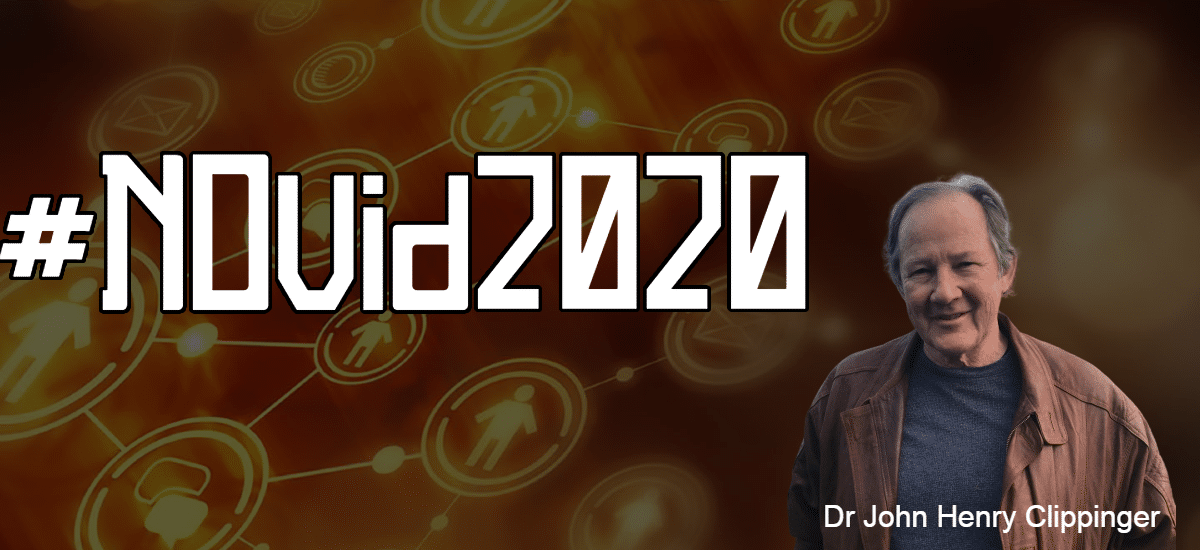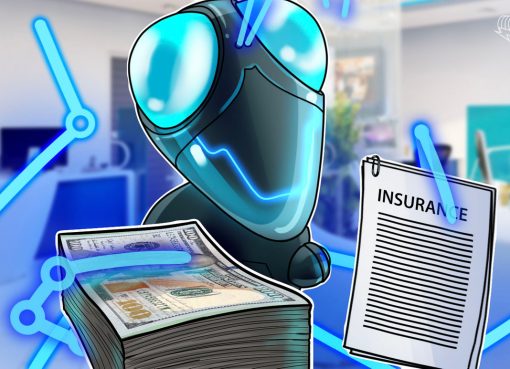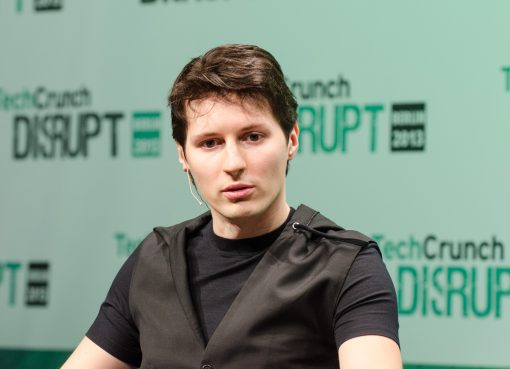by John Henry Clippinger,
It takes a blunt existential crisis to redress systemic societal and economic failings. We are at such a moment with the epic storm of global health and economic crisis compounded by inept and regressive leadership. These failures will not be redressed by traditional means.
These challenges also present a singular opportunity to catalyze a new ecological, social and economic contract for the 21st century. As data are the new currency of the digital realm, there is the real prospect of resetting foundational rights and institutions through an empowering and secure data infrastructure that protects privacy, ensures verifiability and enables authentic, resilient and equitable interactions. Through such an infrastructure the fusion of the physical and the virtual can provide rapid and robust responses to the health, ecological and economic threats before us. And it does not require either a pubic or private Surveillance State!
Economy and Health
The Nobel Laureate economist, Paul Romer, and the physician, Alan Garber, in their NYT, 3/23,20 Opinion piece – How to Prevent a Coronovirus Depression, starkly state the problem:
“To protect our way of life, we need to shift within a couple of months to a targeted approach that limits the spread of the virus but still lets most people go back to work and resume their daily activities. This approach uses two complementary strategies. The first relies on tests to target social distancing more precisely. The second relies on protective equipment that prevents the transmission of the virus. Adopting these strategies will require a massive increase in our capacity for coronavirus testing and a surge in the production of personal protective equipment.”
It Takes a Virus To Defeat a Virus
These challenges cannot be surmounted using current social media and surveying platforms. Nor can they be scaled through traditional top-down institutional governmental means.
In military parlance, it takes a network to defeat a network, and in this case, it takes a digital virus to defeat a biological virus.
The challenge is not just one of speed, but veracity. Being able to capture and verify and share the right kind of data at the right time and place and with the right parties, in real-time. And being able to limit and facilitate access based upon testing and to deploy and allocate resources based upon verified data.
Empower Everyone
Just as everyone can potentially be both a carrier and a fatality so can everyone be a data collector and immunized contributor/worker. Nearly everyone has a mobile phone that can collect and verify critical medical, location, contact, movement, social distancing, and testing data and share such data in a trusted manner.
The technology is here, it works. Singapore is going in this direction – they recently announced the release of the source code for a Bluetooth-App called ‘Trace Together’ which already works like this. Based on the code, developers can independently build even better versions. Moreover, Germany’s leading public health researchers at the Robert-Koch-Institute too, are about to launch a similar mobile application. And online hackathons are pushing the public to build software as well.
It is also open and could be free and could be supported by the Linux Foundation and the WC3.
How It Works: NOVID 2020
Everyone would fill out a questionnaire on their mobile phone or their PC, using a special kind of questionnaire that conforms to a form called HL7 Fast Healthcare Interoperability Resources that meets requisite privacy and health care interoperability and compliance requirements.
The design of the questions would have to be done by expert epidemiologist – computational social scientist and other stakeholders. What is special about this kind of questionnaire is that it would be implemented on a decentralized blockchain infrastructure (Ares, Indy/HyperLedger) that gives the individual a biometrically authenticated identity credential that protects the real identity and data of the individual.
Special cryptographic techniques are used called Zero-Knowledge-Proofs make it possible to prove something about the data without actually sharing the data. Hence, the data is verified, user-controlled, and encrypted. It is not under the control of Facebook, Google, Microsoft, Amazon, or any government.
The data collected on phones can be highly detailed and extremely valuable for epidemiological monitoring – such as geo-location, interactions, clicks, photos, gestures, purchases, and movements. These can be analyzed to compute social distance metrics, contact histories, movements into infected areas and predict contact with potentially infected people.
Decentralized Testing, Verification And Access Control
The NOvid platform can also be used to verify the results of serological tests for immunity to determine whether someone has developed COVID 19 immunity. As such tests can be self-administrated and verified through telemedical consultation. Authorized biomarkers and behavioral signatures can be generated off the phone to give the immune individual a credential that they can use to gain access to public resources and work. Ideally, there would be an incentive program for people to be tested. For low-risk groups, there could even be work and financial incentives to develop a verified immunity through controlled exposure and treatment.
The enrollment process also automatically sets up and installs a wallet for a payment account. EVERYONE could be compensated for their participation and compliance, and companies and collaborators could use the wallet and the payment system to pay workers and partners. The goal is to take the friction out of the entire tracking and sourcing process and to allow multiple independent parties to set up new credentials and metrics to adapt to the changing circumstances of not only the virus but underlying economic and supply chain challenges.
Digital Twins, Gaming And Community Engagement
As societies start to appreciate the efficacy and ecological necessity of virtualized work and interactions, new forms of commerce, civic and cultural engagement will become virtualized and gaming platforms such as Unity and video conferencing platforms such as Zoom will provide high-resolution digital twins of work environments, communities, cities in which ‘simulations’ will substitute for ‘real-life’.
The ability to go from a digital twin of a building, vehicle, product, service or even a community to a physical instantiation is being facilitated through generative design and 3D printing technologies developed by Autodesk and others.
The proposed NOvid platform can provide a trusted entry point into those worlds where flesh and blood individuals can participate and generate sustainable value within their communities on their terms.
Editor’s Note: Dr John Clippinger is currently working with a group at MIT and open source developers to build NOvid. If you are interested contact him by email.


LIVE!
BLOCKTV is the premier televised news source for the blockchain and cryptocurrency community. They are a live, 24/7, TV news channel dedicated to premium reporting on the blockchain and cryptocurrency markets.







